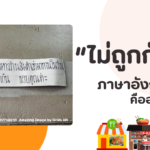| こっち | - () (exp) (1) (from ことでは) (as for (that)) thing; (given (that)) thing; matter; fact; (2) (ksb [EDICT]
|
| が | - () (prt) (positive sentence end) I dare say; (negative sentence end) though, honestly [EDICT]
- () (suf,v5r) (1) to feel (on adj-stem to represent a third party's apparent emotion); (2) to behave as if one were [EDICT]
- () (n) scree [EDICT]
- () (adv-to) (1) (on-mim) thump; thud (dull sound representing something being hit); (2) severe; difficult; hard [EDICT]
- (我) (n) (1) {Buddh} obstinacy; (2) atman; the self; the ego [EDICT]
- (画) (n) picture; drawing; painting; sketch [EDICT]
- (蛾) (n) moth [EDICT]
- (賀) (n) (See 賀の祝) congratulation [EDICT]
- (雅) (n,adj-na) (1) (ant [EDICT]
|
| 済む | - (すむ) (v5m,vi) (1) to finish; to end; to be completed; (2) to merely result in something less severe than expected; (3) to feel at ease; (4) (in the negative) (See すみません) to feel unease or guilt for troubling someone; to be sorry; (P) [EDICT]
|
| だ | - () (prt) (1) (as …たり…たり, after the ren'youkei forms of multiple verbs) -ing and -ing (e.g. "coming and going"); (2) (used adverbially) doing such things as...; (3) (as …たり…たり at sentence-end, after the ren'youkei forms of a repeated verb) expresses a command; (aux-v) (4) (たり only) (arch) (from とあり) (See たる) (after a noun) to be; (5) (たり only) (arch) (from 〜てあり, after the ren'youkei form of a verb) indicates completion or continuation of an action; (P) [EDICT]
- () (prt) (1) (fam) marks wh-question (what, where, who); (2) (chn) strengthens one's judgment or conclusion; (P) [EDICT]
- () (exp) if it's the case; (P) [EDICT]
- () (prt) even [EDICT]
- () (suf,prt) and; or; and the like; and so forth; and what not; (P) [EDICT]
- () (exp) (1) (See でしょう) seems; I think; I guess; I wonder; I hope; (2) don't you agree?; I thought you'd say that!; (P) [EDICT]
- () (n) (col) (abbr) (See 友達) friend [EDICT]
- () (n) undercut (of a machined edge) [EDICT]
- (駄) (pref) (1) (See 駄文・1) poor; low-grade; trivial; insignificant; worthless; (n-suf,ctr) (2) (See 一駄) load; pack; horse load; (n) (3) packhorse [EDICT]
- (兌) (n) dui (one of the trigrams of the I Ching [EDICT]
|
| 司法 | - (しほう) (n,adj-no) administration of justice; (P) [EDICT]
- (sī fǎ, ㄙ ㄈㄚˇ) judicial; (administration of) justice [CE-DICT]
|
| 部 | - (ぶ) (n,n-suf) (1) (higher than a 課) department (in an organization); division; bureau; (2) club; (3) part; component; element; (4) category; (ctr) (5) counter for copies of a newspaper or magazine; (P) [EDICT]
- (べ) (n) hereditary occupational group (Yamato period) [EDICT]
- (bù, ㄅㄨˋ) ministry; department; section; part; division; troops; board; (classifier for works of literature, films, machines etc) [CE-DICT]
|
| に | - (二) สอง [LongdoJP]
- () (prt) indicates location of action (formal literary form of "de"); at; in; (P) [EDICT]
- () (prt) (See に,は) for (in regard to); in order to [EDICT]
- () (exp) also; too; not ... either; as well; even [EDICT]
- () (exp) (1) (also にゃあ) (See ねば) if not ... (negative conditional); (2) (See には) for (in regard to); in order to [EDICT]
- (荷) (n) (1) load; baggage; cargo; freight; goods; (2) burden; responsibility; (P) [EDICT]
- (似) (suf) takes after (his mother) [EDICT]
- (丹) (n) red earth (i.e. containing cinnabar or minium); vermilion; (P) [EDICT]
- (土) (n) (arch) soil (esp. reddish soil) [EDICT]
- (尼) (n,n-suf) (abbr) (See 比丘尼) bhikkhuni (fully ordained Buddhist nun) [EDICT]
- (弐) (num) two (used in legal documents) [EDICT]
|
| くれる | - (呉れる) (v1,vt) (uk) (くれ is an irregular alternative imperative form) to give; to let one have; to do for one; to be given; (P) [EDICT]
- (暮れる) (v1,vi) to get dark; to end; to come to an end; to close; to run out; (P) [EDICT]
- (眩れる) (v1,vi) to get dark; to end; to come to an end; to close; to run out; (P) [EDICT]
- (暗れる) (v1,vi) to get dark; to end; to come to an end; to close; to run out; (P) [EDICT]
|
| て | - () (conj) (col) (See と言うか) or rather (say); or better (say); or perhaps I should say; or, how should I put it,...; I mean [EDICT]
- () (prt) a sort of thing like; used after a phrase to modify the following noun [EDICT]
- () (prt) (1) (also でも, っても) even if; even though; (int) (2) (abbr) (See さても) wow [EDICT]
- (手) (n) (1) (occ. pronounced た when a prefix) (See お手・おて・1) hand; arm; (2) (col) (See お手・おて・3) forepaw; foreleg; (3) handle; (4) hand; worker; help; (5) trouble; care; effort; (6) means; way; trick; move; technique; workmanship; (7) hand; handwriting; (8) kind; type; sort; (9) (See 手に入る) one's hands; one's possession; (10) (See 手に余る) ability to cope; (11) hand (of cards); (12) (See 山の手・1) direction; (P) [EDICT]
|
| やる | - (演る) (v5r) (sl) (See 演じる) (usu. used in the popular music industry) to perform; to play; to act [EDICT]
- (遣る) (v5r,vt) (1) (uk) (col) to do; (2) (often 犯る) to have sexual intercourse; (3) (often 殺る) to kill; (4) to give (to inferiors, animals, etc.); (aux-v) (5) to do for (inferiors); (6) (See 使いにやる) to send (e.g. somebody somewhere); to dispatch (e.g. letter) (despatch); (7) to move (something to); to row (a boat); (8) (used in place of other verb) to have (eat, drink, smoke); to study; to run or operate (a restaurant); (P) [EDICT]
- (殺る) (v5r) to do someone in; to bump someone off [EDICT]
|
| さ | - () (conj,int) come; come now; (P) [EDICT]
- () (n) blowfly maggots used as fishing bait [EDICT]
- () (v5s,vt) (1) (See 為せる・1) to make (someone) do; (2) (See 為せる・2) to allow (someone) to; (aux-v,v5s) (3) auxiliary verb indicating the causative; (4) auxiliary verb indicating that one has been granted the permission to do something; (5) auxiliary verb used to make verbs more "active"; (6) auxiliary verb used as an extreme honorific for others' actions; (n) (7) (arch) swidden [EDICT]
- () (suf) (1) Mr, Mrs, Miss or Ms; (2) honorific used with occupational titles; (P) [EDICT]
- () (n) (1) hook (high point of a song); (2) (さび only) (abbr) (See 山葵) (at a sushi shop) wasabi [EDICT]
- (左) (n,adj-no) left (esp. in vertical Japanese writing); the following [EDICT]
- (差) (n,n-suf) difference; variation; (P) [EDICT]
- (然) (adv) (arch) so; like that; in that way [EDICT]
|







